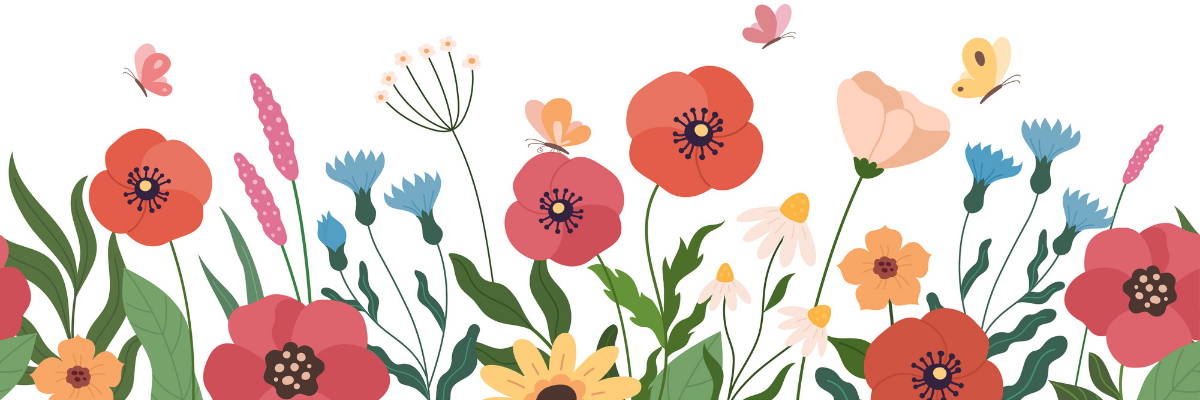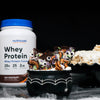Take Back Springtime With These NATURAL Antihistamines

Spring! The weather is warming up, and the trees are getting their leaves back, but for many of us, pesky allergies have us running from flowers rather than stopping to smell them.
If you suffer from seasonal allergies, then you know exactly what we’re talking about. Itchy or watery eyes, runny or stuffy nose, headache, sneezing. No thank you!
Medicine used to treat allergies are often referred to as antihistamines, but over-the-counter antihistamines can be expensive and often come with side effects such as drowsiness.
Thankfully, natural alternatives to popular over-the- counter antihistamines exist and are widely available!
What’s an Antihistamine?
Allergic reactions are caused when our immune system registers contact with an otherwise harmless substance (such as pollen or pet hair) as a threat.
In response, the body releases histamine, a chemical which increases the permeability of the capillaries in order to allow the rapid passage of white blood cells.
Antihistamines work by blocking histamine activity, reducing symptoms, and freeing you from the discomfort caused by your overenthusiastic immune system.
The Best Natural Antihistamines
Over-the-counter antihistamines are certainly popular, they can often be expensive and produce unpleasant side effects. Research of many products has even been restricted from long-term use precisely because of these side effects.
Maybe you’ve had a negative experience with an over-the-counter antihistamine and want to try something else. Maybe you are a firm believer in the value of natural treatments.
Whatever your reason, these natural antihistamines are certainly worth checking out.
Butterbur
Butterbur is a marsh plant that’s part of the daisy family whose effects are often said to be similar to those of cetirizine in patients with seasonal allergies.
Butterbur helps block the inflammatory chemical leukotriene that causes allergic reactions, relieving or in some cases preventing allergic reactions entirely.
Quercetin
Quercetin is a powerful antioxidant belonging to a group of polyphenol compounds known as flavonoids. Often referred to as the “master flavonoid”, it protects the body from free radical damage and supports overall good health and longevity.
It has antioxidant and anti-inflammatory effects, and studies have shown that it can help reduce allergy symptoms.
Flavonoids are renowned for their ability to inhibit histamine release, and seeing as quercetin is the “master flavonoid,” it stands to reason that it is more effective than other options.
Bromelain
You may have heard of bromelain, the enzyme famous for being found in pineapples. Bromelain can also be found in supplement form, and it is commonly believed to be an effective treatment for sinusitis.
This enzyme has anti-inflammatory effects along with Quercetin, which is why you may see them often together in the same supplement.
Stinging Nettle
Stinging nettle (Urtica dioica) is a plant that is rich in nutrients, including vitamins A and C, iron, and calcium. It is also a natural diuretic, which means it can help flush toxins out of the body.
Stinging nettle may help reduce allergy symptoms such as sneezing, runny nose, and itchy eyes.
It also has anti-inflammatory properties and thus could potentially help reduce inflammation in the body, its a win-win!
BONUS - Even More Supplements to Help You Thrive
These supplements may not help with allergies, but in the springtime our bodies may need an extra boost of these nutrients to support seasonal changes. Taking vitamin B3, vitamin B2, milk thistle, and vitamin K2+D3 in the spring can be beneficial for various reasons.
- Vitamin B3 and B2 are essential for converting food into energy, and they also may support healthy skin, nerves, and digestion.
- Milk thistle is a natural herb that can help support liver health and protect against toxins.
- Vitamin K2+D3 work together to promote bone health, support cardiovascular health, and may boost immune function.
- Magnesium has been shown to support better sleep, and help reduce stress.
It is always best to consult with a healthcare provider before starting any new supplement regimen.

Take Control Of Your Health
This allergy season, don’t just survive. Thrive! You don’t have to hide indoors or live with unpleasant symptoms, and you don’t have to overspend at the pharmacy either.
Try any of these natural antihistamines, and see what works for you!
Sources
https://www.ncbi.nlm.nih.gov/pmc/articles/PMC64514/ (1)
-
Posted in
General Health, Immune Support











